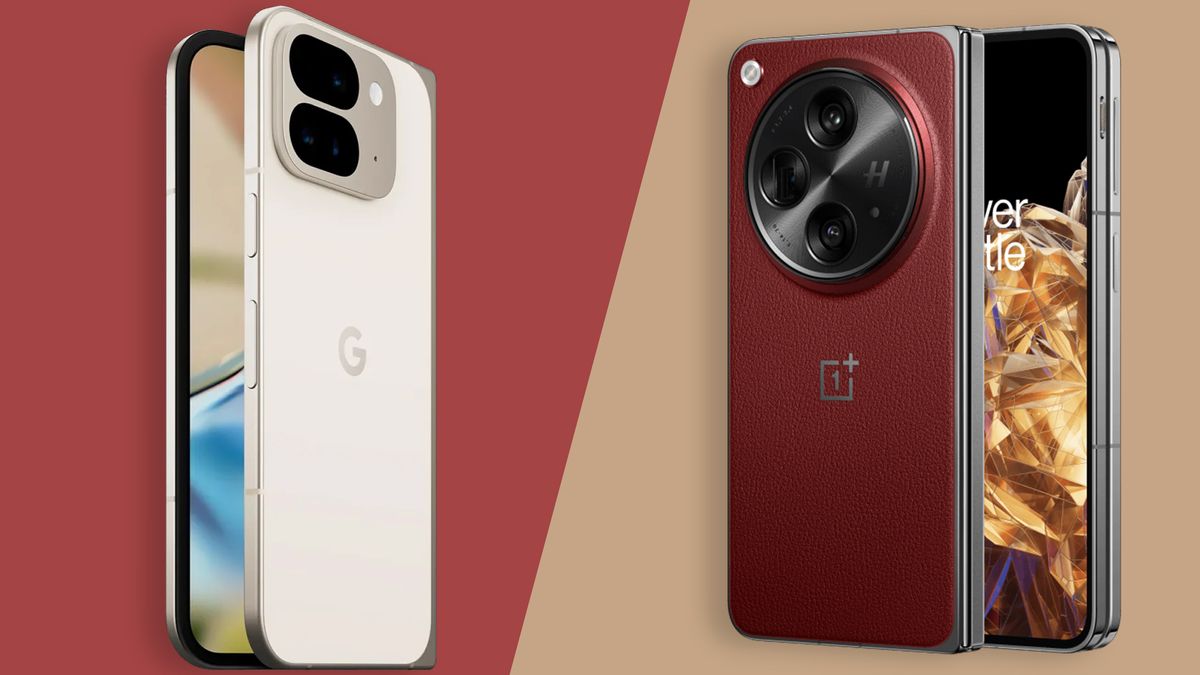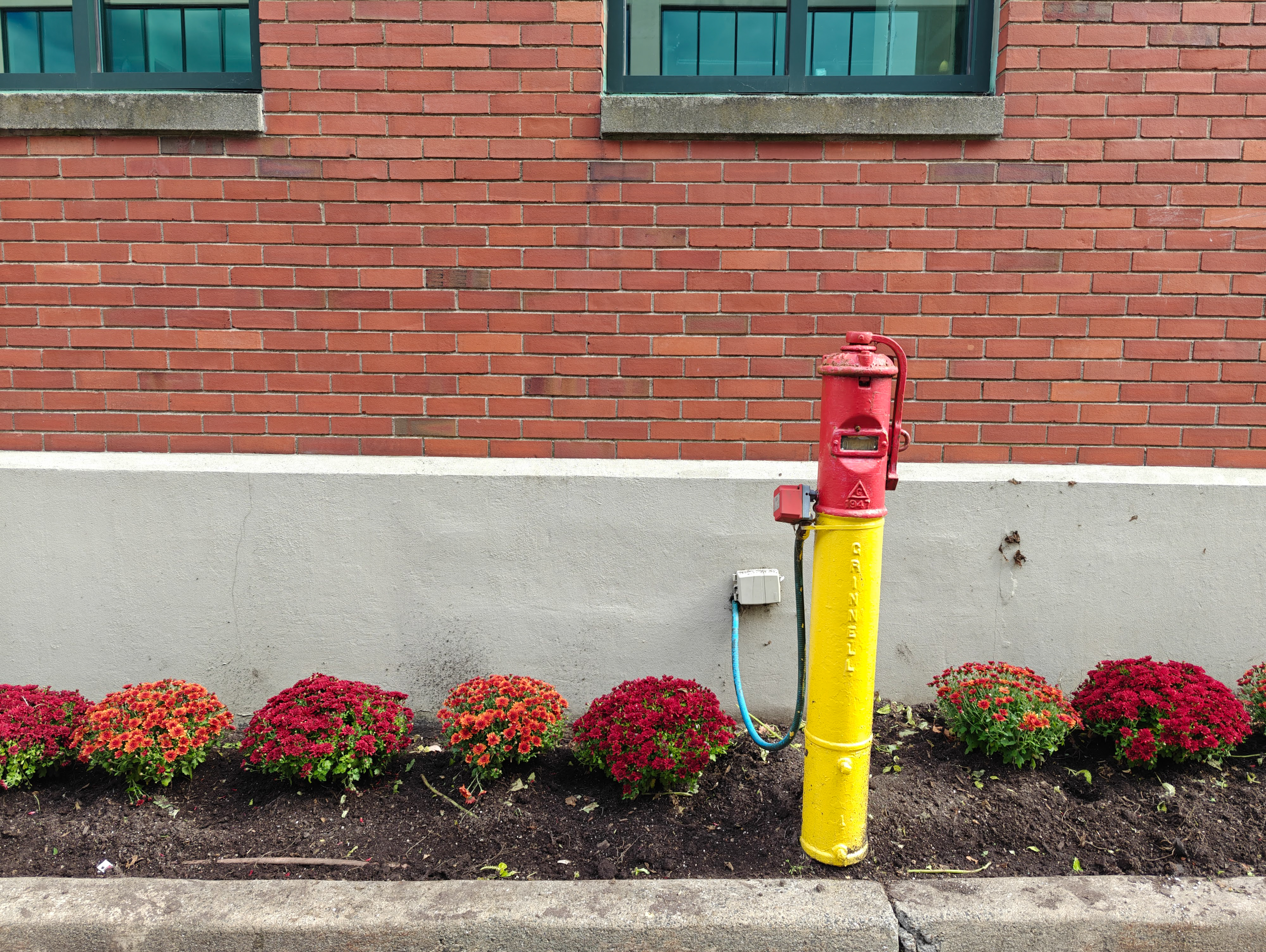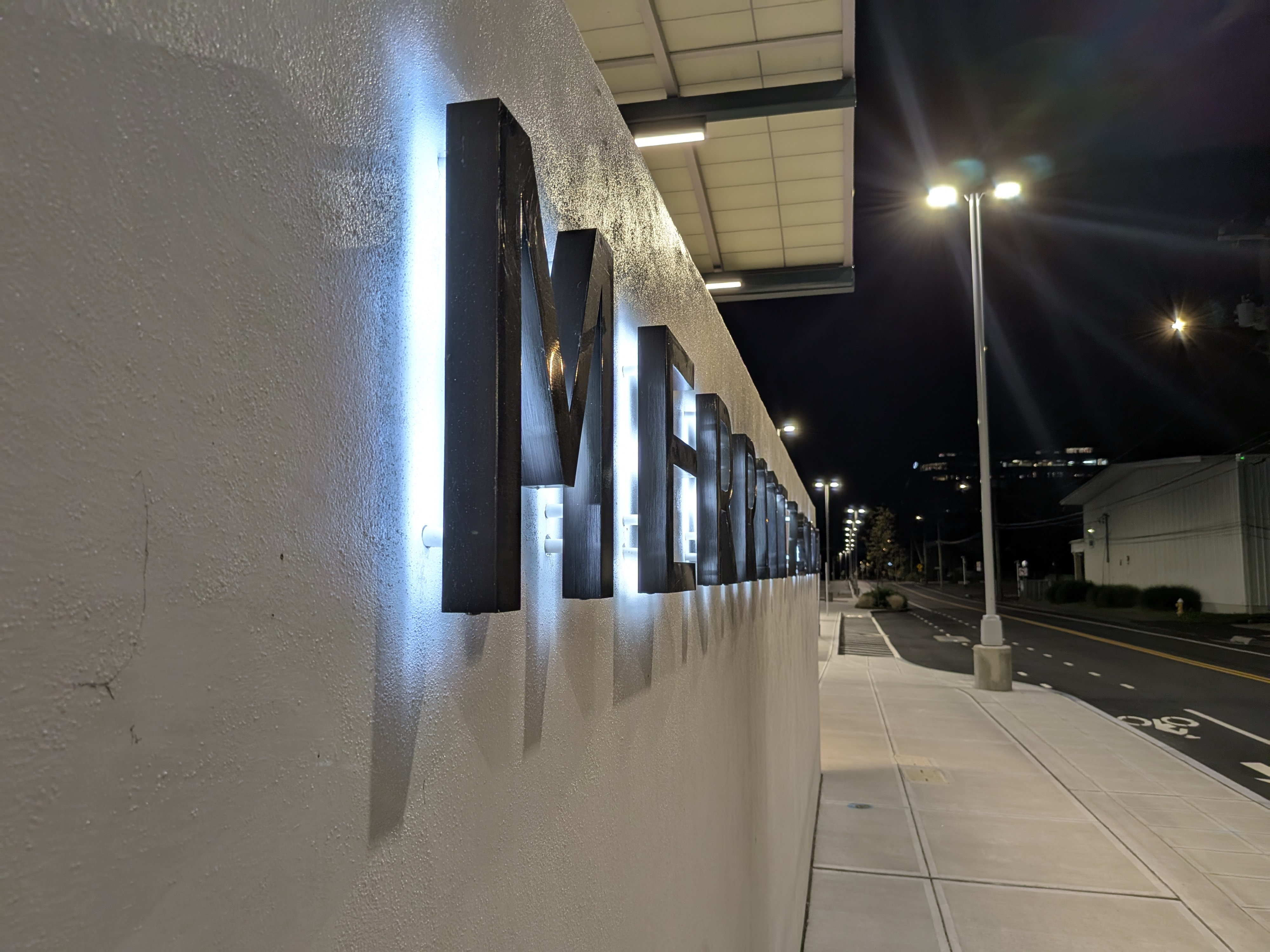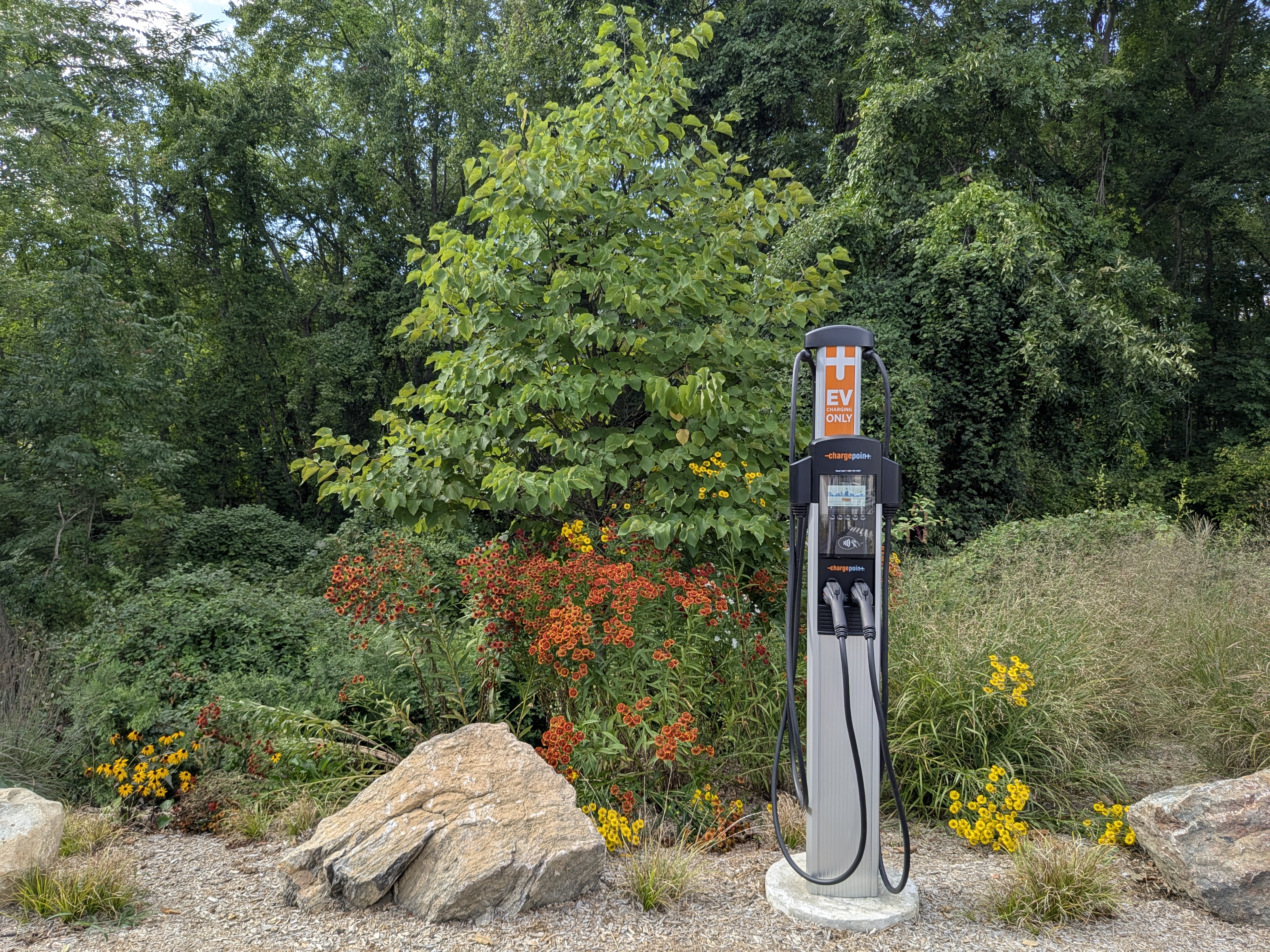Google’s second stab at a foldable hits the mark, with more elegant hardware and a software experience – underpinned by exclusive AI features – you won’t find anywhere else.
For
- Thinner than the Open (both open and closed)
- Larger 8-inch main display
- Exclusive AI feature set
Against
- Heavier than the Open
- Generative AI features need further refinement
- 3x slower fast charging than the Open
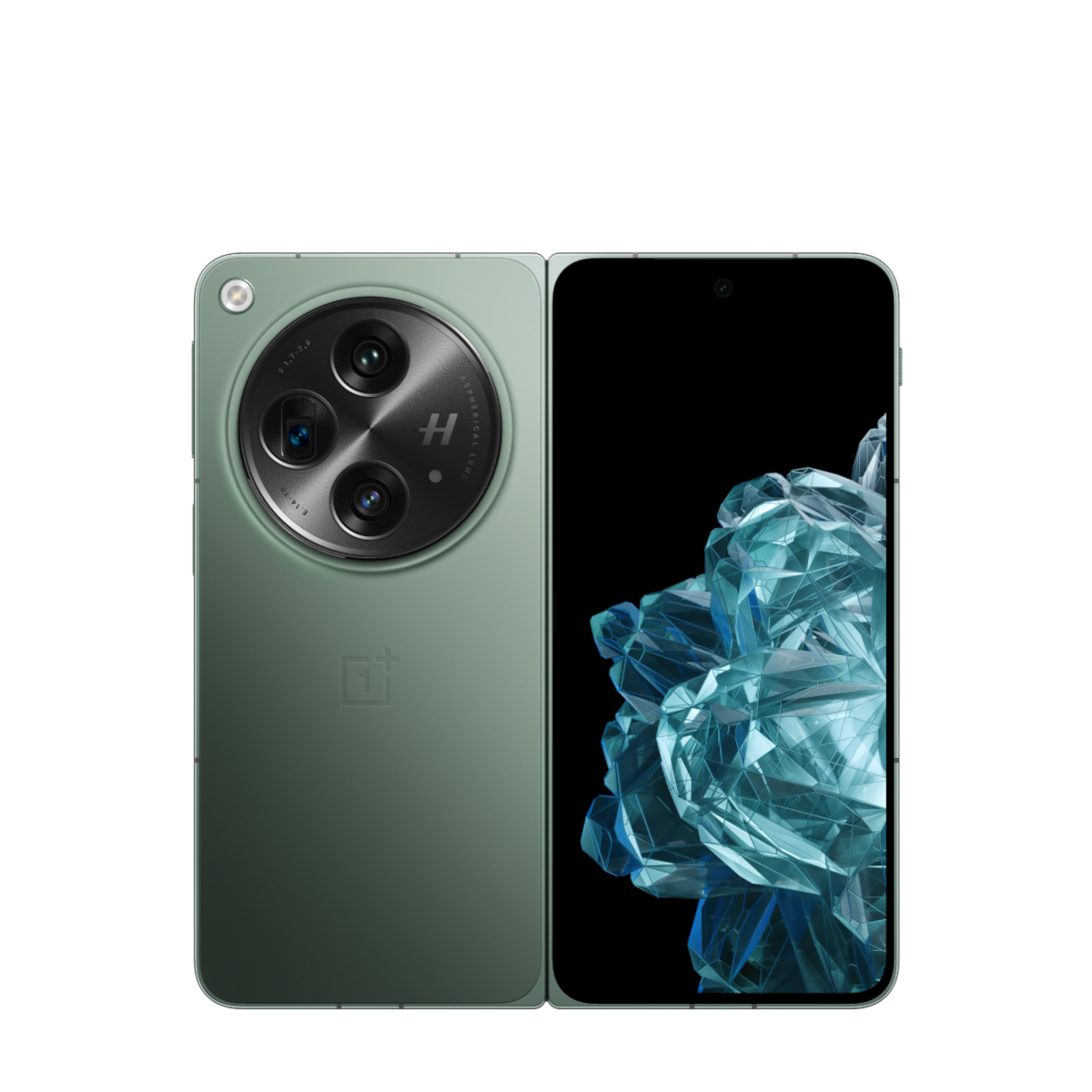
The OnePlus Open makes for one hell of a debut, as the company’s first foldable. It shows just how uncompromising the foldable experience can and should be, while also staying true to OnePlus’ iconic hardware and software design.
For
- Brighter, sharper displays
- Superior CPU and GPU performance
- Larger battery and significantly faster charging
Against
- Weaker water resistance
- Shorter software support term
- No wireless charging
2023 was a stellar year for foldables and one that saw both Google and OnePlus debut in the category, with the Google Pixel Fold and OnePlus Open, respectively.
A little over a year later, Google has brought forth a successor in the Google Pixel 9 Pro Fold. But despite being an excellent refinement in its own right, the OnePlus Open still carries plenty of weight as one of 2023’s best foldables; boasting hardware and software to rival Google’s latest Pixel Fold. So, which is better?
For more Pixel and OnePlus content, check out our Google Pixel 9 Pro XL vs Pixel 9 Pro Fold comparison, as well as our guide to everything you need to know about the forthcoming OnePlus 13.
Google Pixel 9 Pro Fold vs OnePlus Open: specs comparison
Here’s an at-a-glance look at the key specs of both the Google Pixel 9 Pro Fold and OnePlus Open:
| Header Cell – Column 0 | Pixel 9 Pro Fold | OnePlus Open |
|---|---|---|
| Dimensions: | 155.2 x 150.2 x 5.1mm (open), 155.2 x 77.1 x 10.5mm (closed) | 153.4 x 143.1 x 5.8mm (open), 153.4 x 73.3 x 11.7mm (closed) |
| Weight: | 257g | 239g / 245g |
| Main display: | 8-inch 1-to-120Hz LTPO OLED Super Actua Flex Display | 7.82-inch 1-to-120Hz LTPO 3.0 Flexi-fluid AMOLED |
| Cover display: | 6.3-inch 60-to-120Hz OLED Actua Display | 6.31-inch 10-to-120Hz LTPO 3.0 Super Fluid AMOLED |
| Display resolution: | 2076 x 2152 (main), 1080 x 2424 (cover) | 2268 x 2440 (main), 1116 x 2484 (cover) |
| OS (at launch): | Android 14 + 7 years of OS & security updates | Android 13 w/ Oxygen OS 13.2 + 4 years of OS & 5 years of security updates |
| Chipset: | Google Tensor G4 | Qualcomm Snapdragon 8 Gen 2 |
| RAM: | 16GB (LPDDR5) | 16GB (LPDDR5X) |
| Storage: | 256GB, 512GB (UFS 3.1) | 512GB, 1TB (UFS 4.0) |
| Rear cameras: | 48MP f/1.7 main, 10.5MP f/2.2 ultra-wide, 10.8MP f/3.1 telephoto (5x) | 48MP f/1.7 main, 48MP f/2.2 ultra-wide, 64MP f/2.6 telephoto (3x) |
| Front cameras: | 10MP f/2.2 (main & cover display) | 20MP f/2.2 (main display), 32MP f/2.4 (cover display) |
| Battery: | 4,650mAh | 4,805mAh |
| Charging: | 21W wired, 7.5W wireless | 67W wired |
| Colors: | Porcelain, Obsidian | Voyager Black, Emerald Dusk, Crimson Shadow |
Google Pixel 9 Pro Fold vs OnePlus Open: price and availability
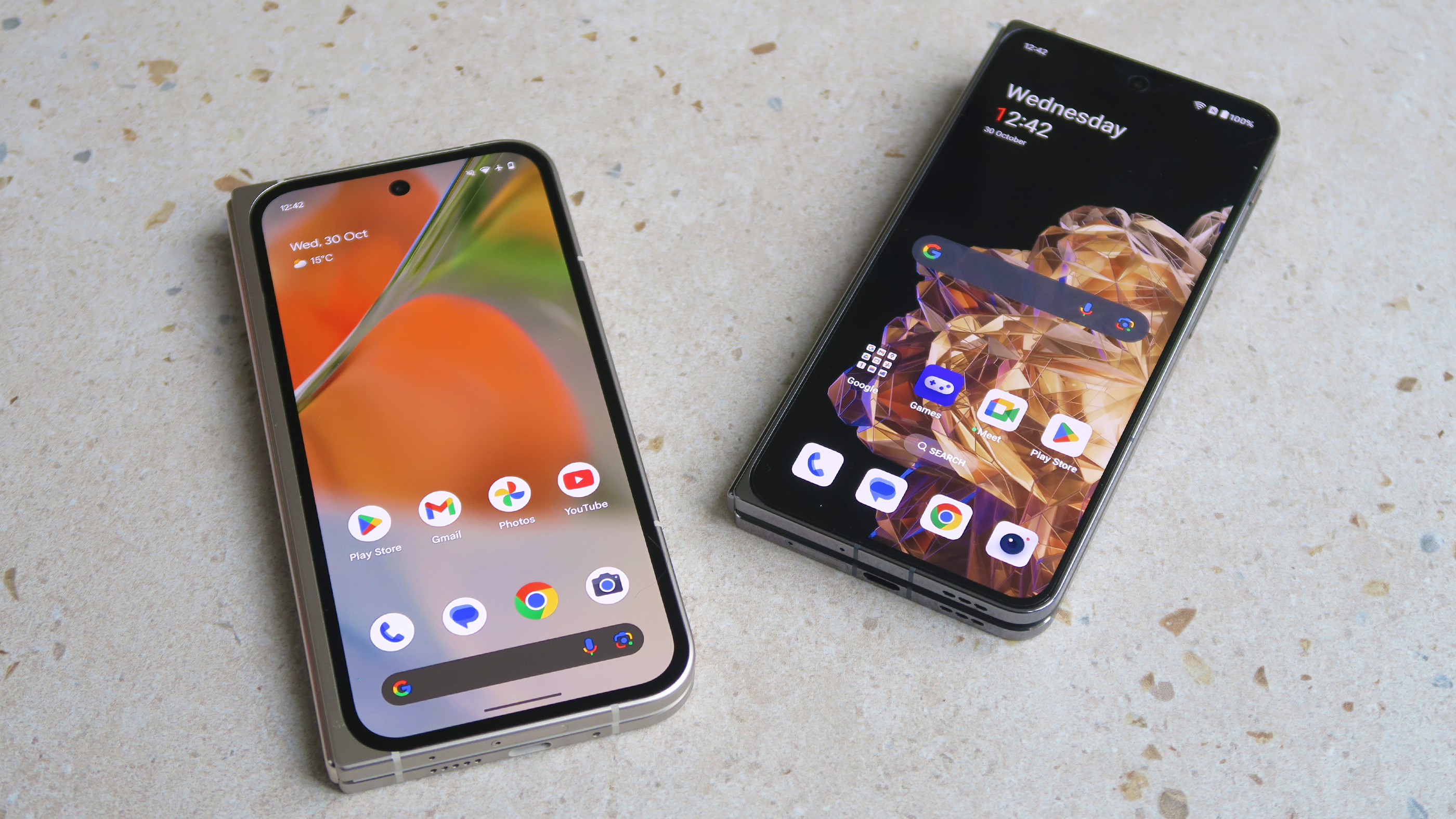
OnePlus’ debut foldable was confirmed (exclusively by TechRadar) at MWC 2023 and subsequently launched on October 26 that same year. At launch, it came in a single SKU, sporting 512GB of storage, and was priced at $1,699.99 / £1,599. However, two things have happened since its initial release.
Fast-forward to August 2024 and the company unveiled the OnePlus Open Apex Edition, which aside from sporting a head-turning new Crimson Shadow colorway, also benefited from even more storage; topping out at 1TB. At launch, it cost $1,899.99 / £1,699.
Secondly, having been out for more than a year now, the OnePlus Open’s price has had time to drop. At the time of writing, you can pick up a 512GB Open for $1,599 on Amazon US or £1,299 direct from OnePlus’ own UK store. Similarly, the Apex Edition is enjoying a similar £300 discount, coming in at £1,399. However, no equivalent deal is running in the US.
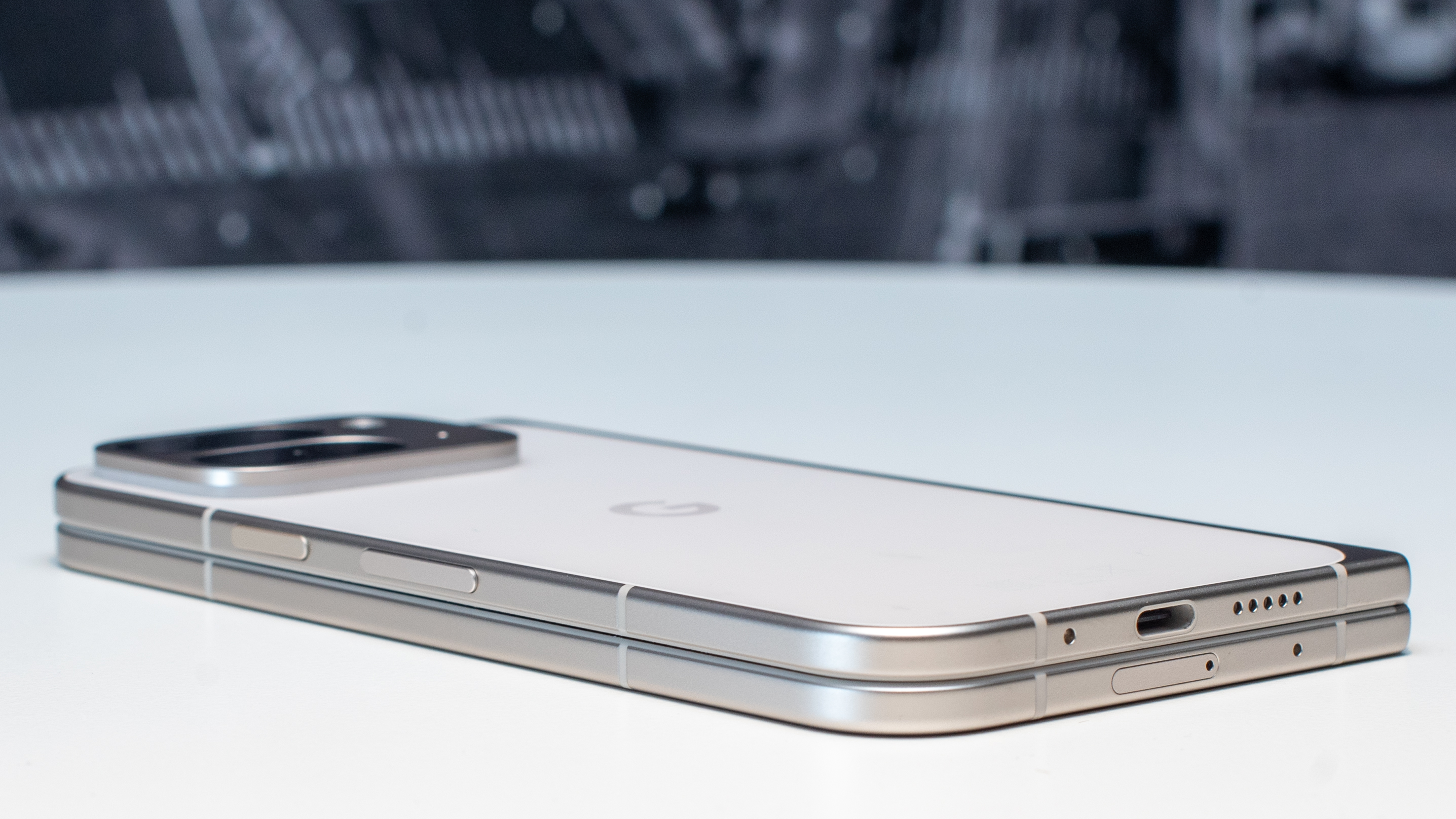
Being the newer device in this comparison – arriving on the market September 4, 2024 – the Pixel 9 Pro Fold has had fewer opportunities to receive any meaningful discounts. As such, prices start at $1,799 / £1,799 / AU$2,699 for the 256GB model, and rise to $1,919 / £1,869 / AU$2,899 for the 512GB capacity variant.
To its credit, the Pixel is more readily available in markets like Australia, but on the flip side, despite half the amount of base storage, it still costs more than the OnePlus Open did at launch.
Google Pixel 9 Pro Fold vs OnePlus Open: design and display
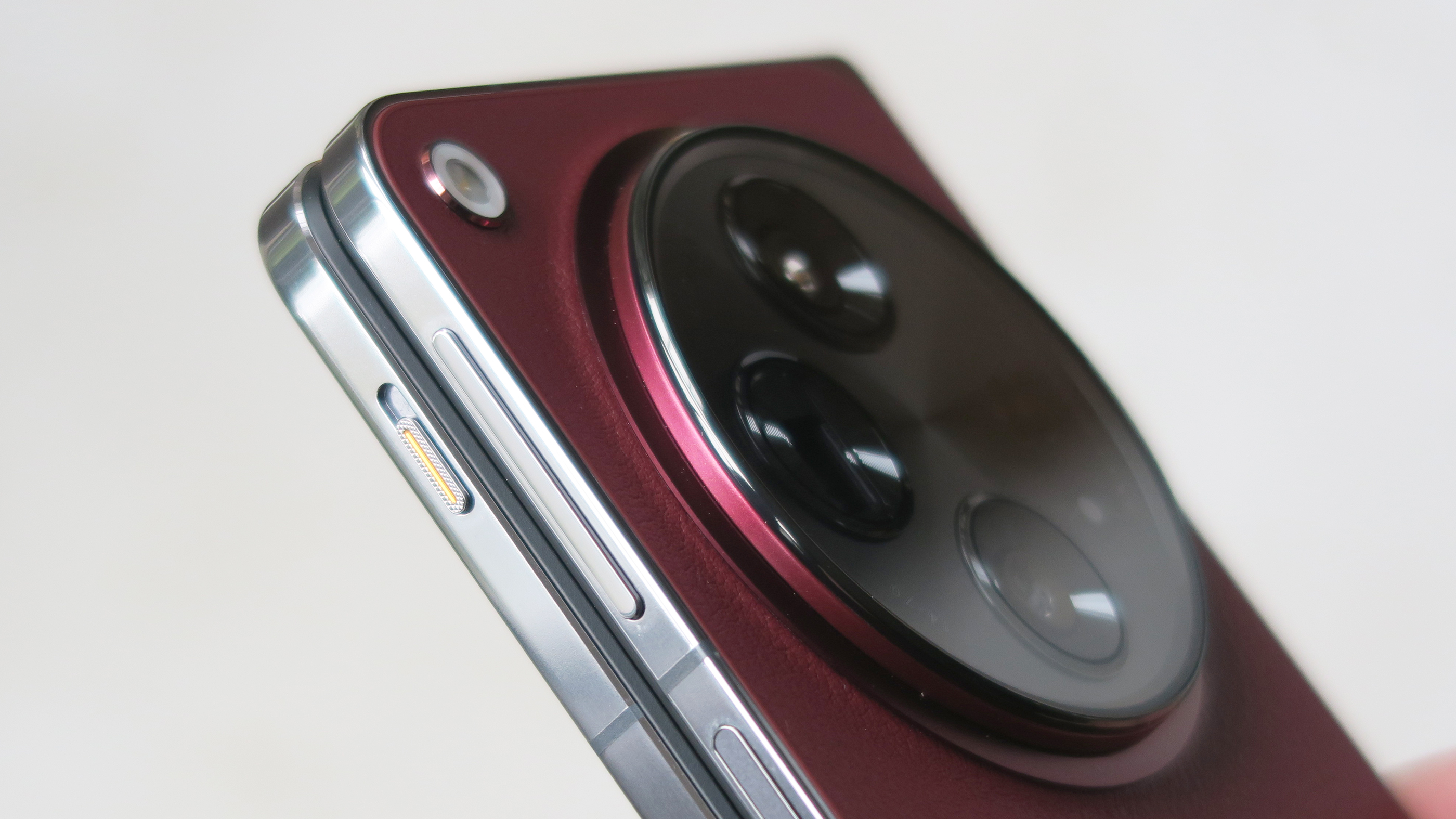
Part of what made the Open’s entry onto the foldable scene so impactful was that OnePlus nailed its design. It wasn’t oddly narrow or overtly wide when folded closed – like the then-current Samsung Galaxy Z Fold 5 and original Pixel Fold, respectively – it more closely matched the proportions of a conventional candy bar phone, and more than that, it just looked good.
Side by side, you get harder edges and a mirror-polished frame with the OnePlus, while the Pixel 9 Pro Fold sports softer forms and sandblasted metalwork that’s arguably more comfortable in the hand. The Pixel’s offset camera does increase the chance of wobble on a flat surface compared to the Open’s larger centralized circular camera module, though.
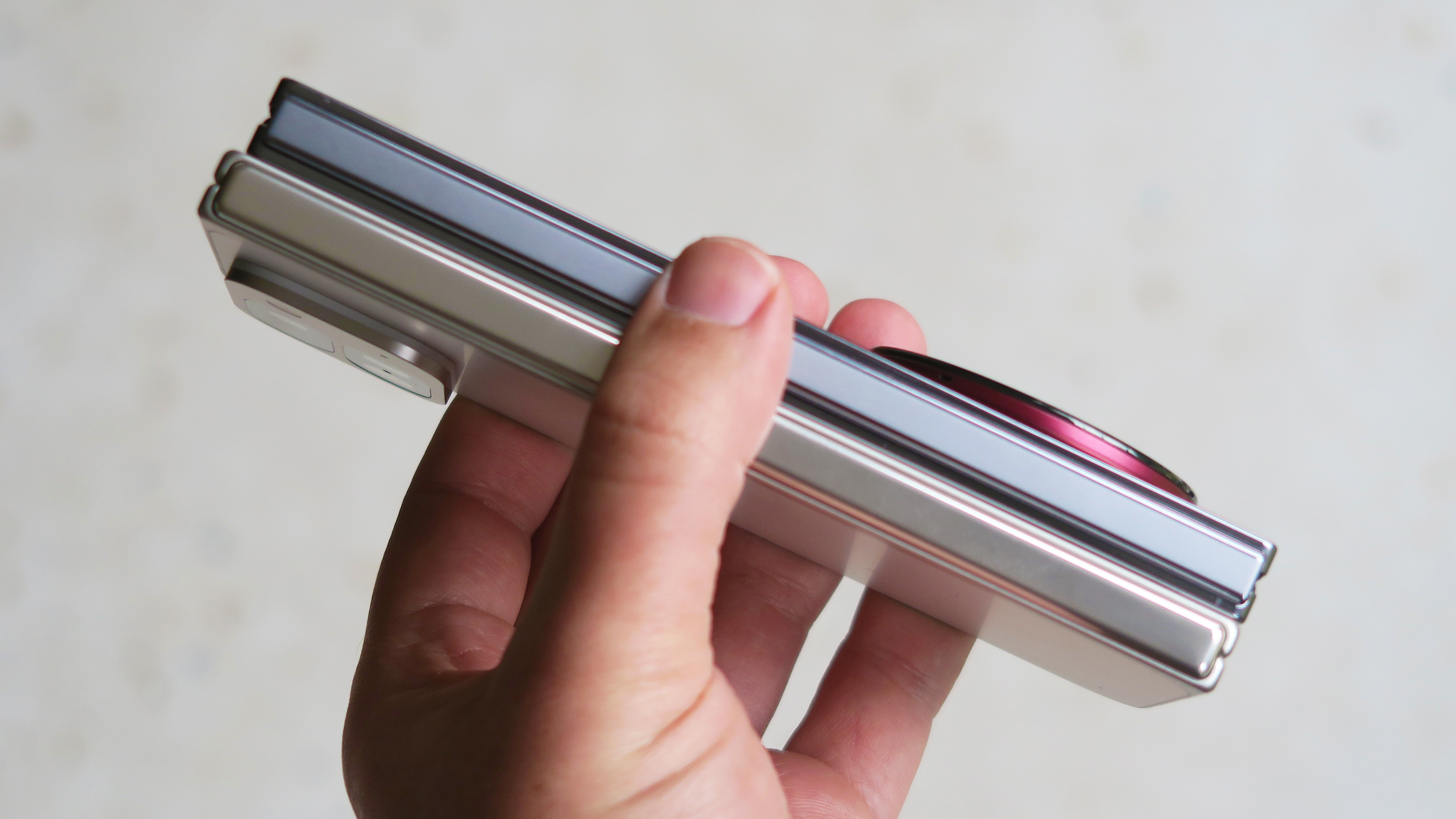
Practically speaking, the Pixel 9 Pro Fold is the bigger and heavier device here; primarily as a result of its larger 8-inch main display. Although, open or closed, both phones serve up logical aspect ratios, even if the Open’s slightly thinner, narrower, and wider proportions give it a slight edge.
If you’re worried about resilience, OnePlus includes a case for the Open in-box, while Google’s official 9 Pro Fold case will set you back an additional $49.99 / £49.99 / AU$79.99. The Pixel does, at least, boast superior IPX8-certified water resistance, to the Open’s IPX4 rating.
Another key consideration with foldables is the display crease and, thankfully, both companies have worked hard to minimize its presence on their latest folding offerings. That said, the Pixel’s crease is a fraction tidier in side-by-side comparison.
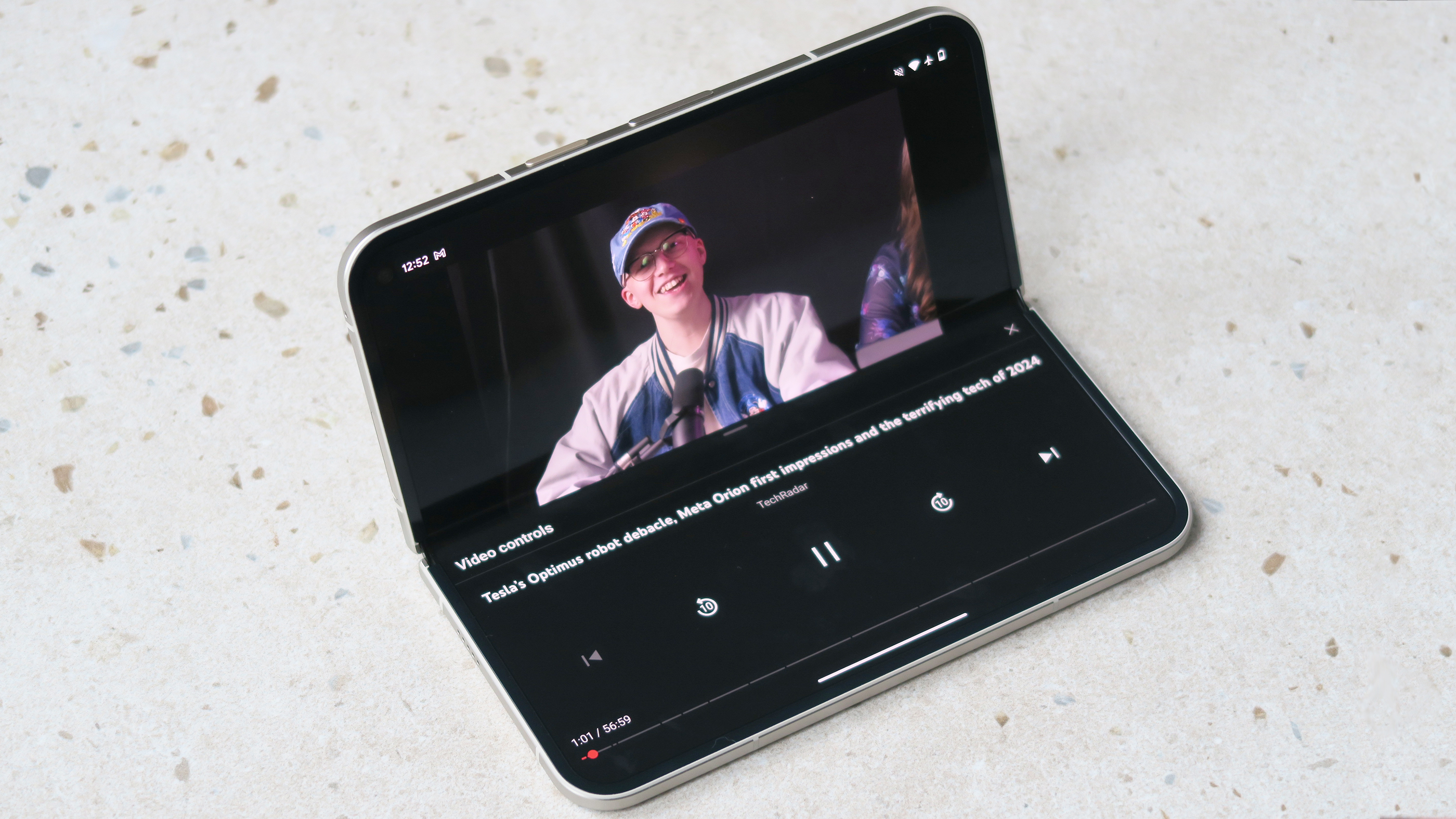
Although the real-world difference isn’t night and day, the OnePlus trumps the Pixel in almost every facet of its display tech.
The Open’s 6.31-inch cover display and 7.62-inch main Flexi-fluid AMOLED pack in more pixels, support a broader dynamic refresh rate, and hit a higher peak brightness than Google’s latest foldable. LTPO 3.0 tech ensures a variable refresh rate of between 10Hz and 120Hz on the Open’s cover display, compared to a choice of 60Hz or 120Hz on the outer screen of the 9 Pro Fold. Both foldables offer a fully dynamic 1Hz to 120Hz main panel, however. Being able to refresh less frequently directly benefits power efficiency.
The Pixel trumps the Open on panel-wide brightness (1,600nits versus 1,400), but OnePlus’ foldable boasts a superior peak brightness of 2,800nits, translating to fractionally better outdoor legibility from Google’s phone but better contrast and dynamism when watching HDR content on the OnePlus.
Google Pixel 9 Pro Fold vs OnePlus Open: Cameras
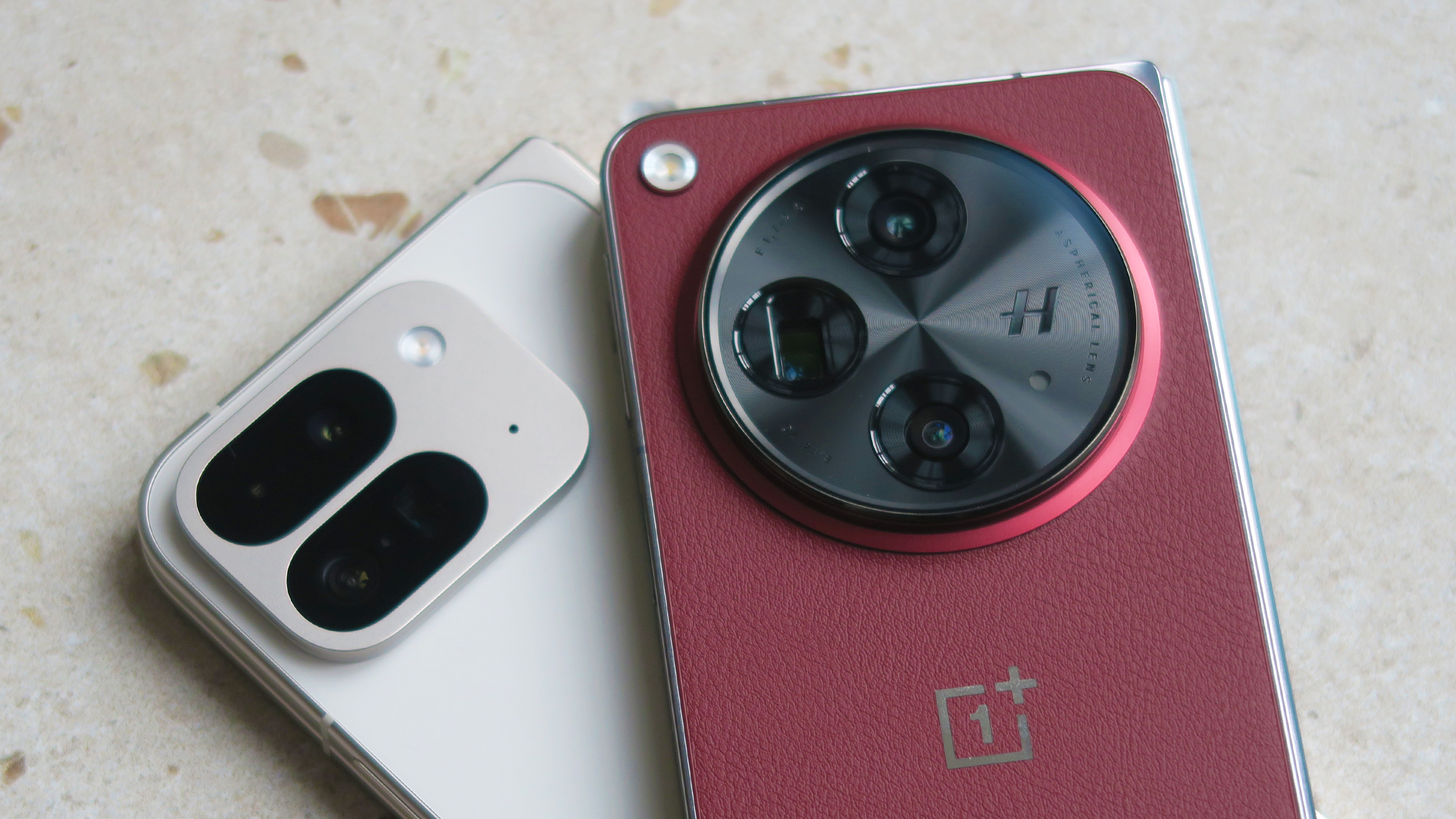
Soon after its release, the OnePlus Open proved to be the best camera phone among the day’s crop of top foldables, but, naturally, Google wasn’t one to let that slide, especially considering its pedigree in the wider mobile photography space.
While the Pixel 9 Pro Fold leans on more modest camera hardware than the likes of the Pixel 9 Pro and Pixel 9 Pro XL, it still packs in all the smarts Pixel users have come to appreciate; even the generative tools that push the boundaries on what even counts as actual photography.
Hardware-wise, you get larger sensors and a higher megapixel count with the Hasselblad-branded OnePlus system, but a longer optical zoom and better low light performance out of the Pixel’s sensors.
If you like your photos with a little more drama but that sometimes require a little more work in post, the Open will likely be your preferred snapper, otherwise Google’s foldable does a great job of keeping subjects exposed and motion blur at bay in a way that only Google knows how.
While the Open has a few novel extras, like X-Pan mode, Master photo filters, and optional 10-bit color capture, the Pixel’s Magic Editor lets you truly twist shots captured in any direction you desire. The results, by their very nature, pull themselves away from the spirit of mobile photography, but as a creative tool, it’s a truly unbridled addition that the Open has nothing to compare against.
OnePlus Open camera samples
Google Pixel 9 Pro Fold camera samples
Google Pixel 9 Pro Fold vs OnePlus Open: Performance and software
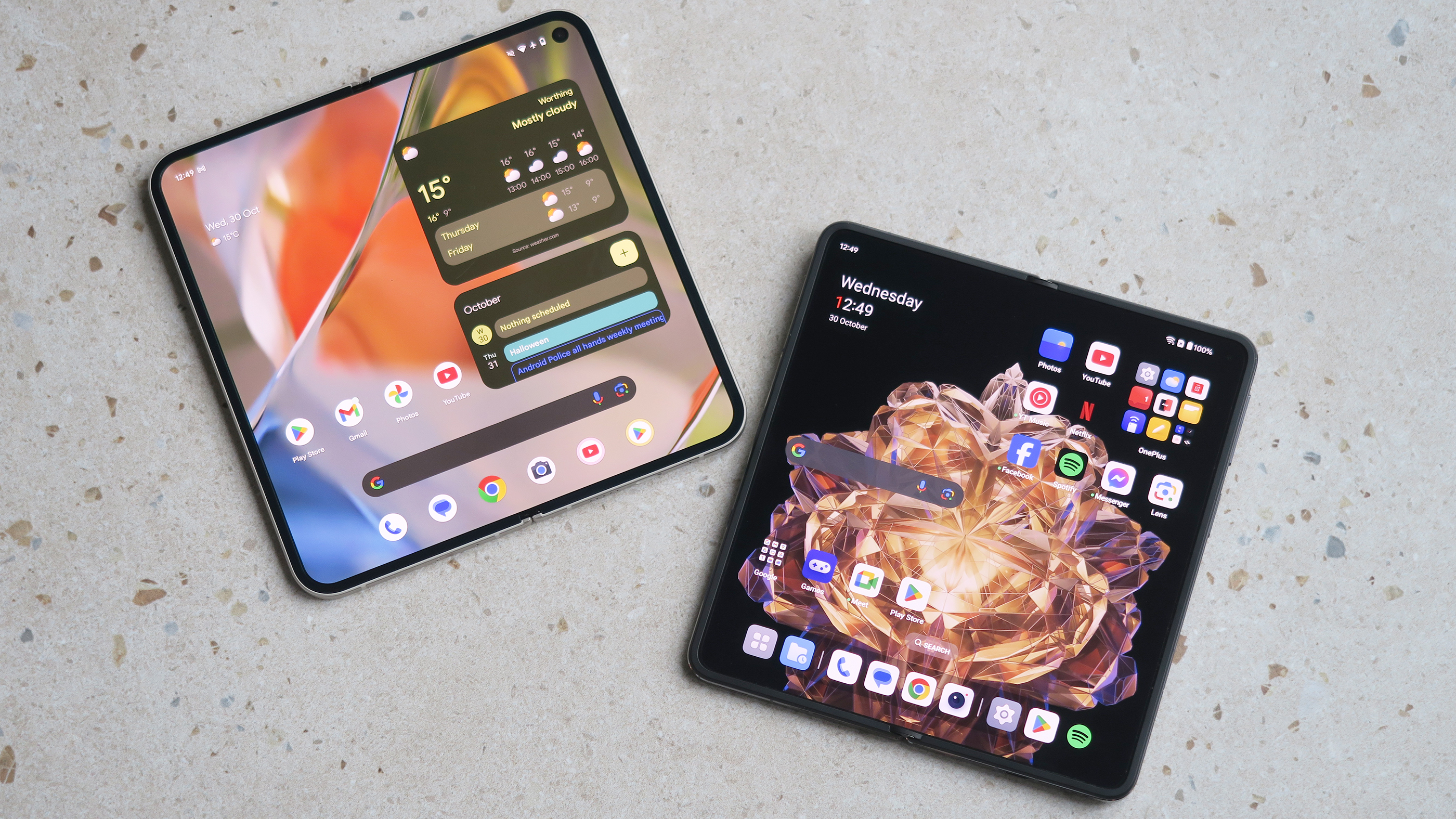
When looking at the silicon powering these foldables, you have Google’s latest Tensor G4 – which focuses on AI while deprioritizing raw performance – against one of 2023’s best phone chipsets, Qualcomm’s Snapdragon 8 Gen 2.
In real-life conditions, neither chip is going to let you down right now; both ensure consistently smooth user experiences and both can handle the latest games with a respectable level of visual fidelity at a decent frame rate.
If you’re looking at the numbers, the Tensor edges out the Snapdragon on AI-based tasks, but conversely, the 8 Gen 2 looks to be the better hardware for graphical performance (i.e. gaming). This makes sense, as Google’s incentivized itself (and Pixel users) to focus on AI functionality within its smartphone user experience, an aspect that’s a far less important part of OnePlus’ OxygenOS DNA.
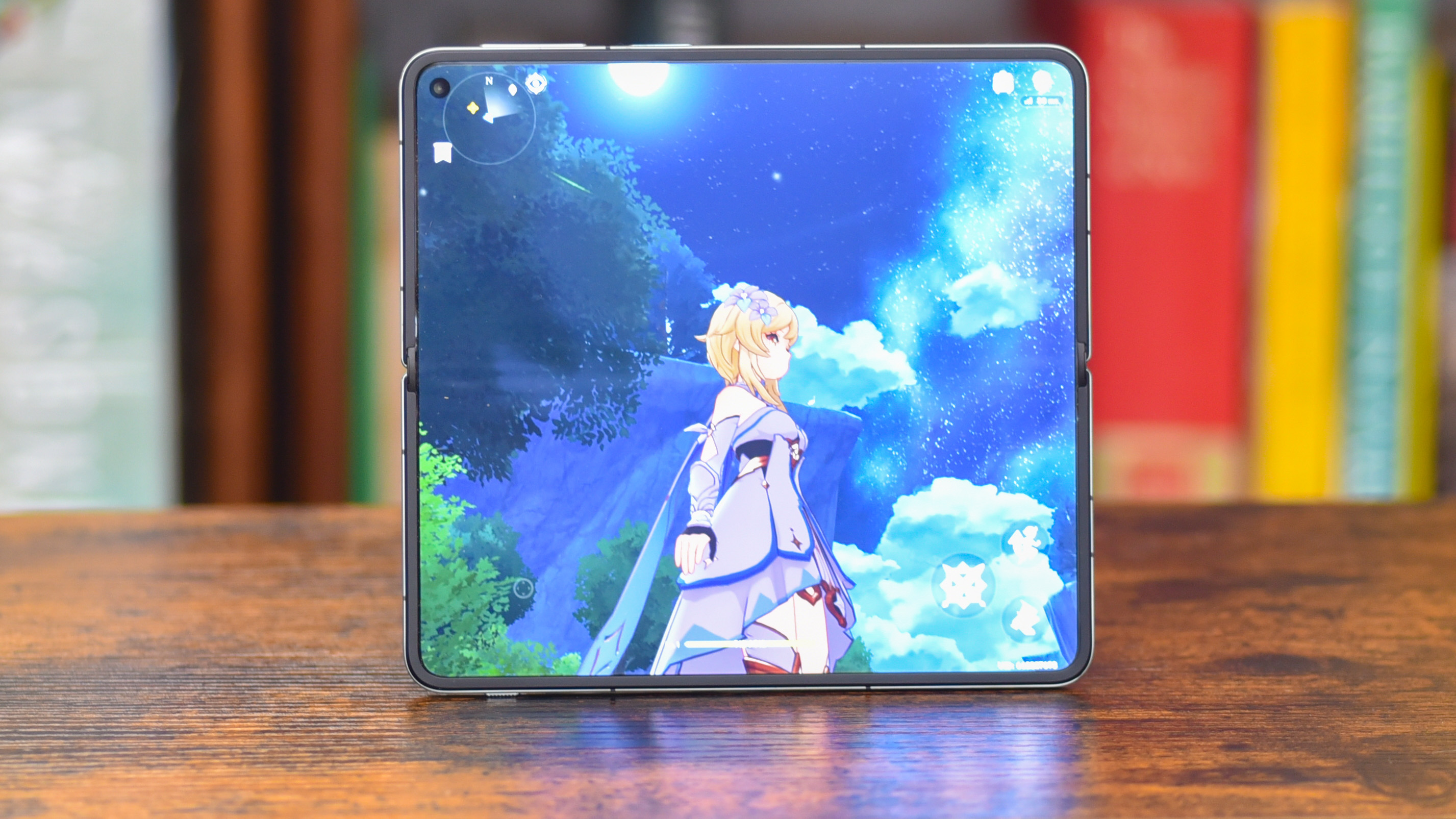
Either way, you’ve got a clean take on Android, with Open Canvas being a particular highlight of the Open’s software that reimagines how multitasking should work on a larger foldable display, to great effect. Meanwhile, Google has made a couple of meaningful tweaks to the standard Pixel experience to better capitalize on that larger display, but there’s definite room for improvement in comparison to OnePlus’ approach.
Despite the age of the Snapdragon 8 Gen 2 and the so-so performance of the Tensor G4, both chips should serve their respective smartphones well for the next few years. The real sticking point is software support, at least from a value-for-money perspective.
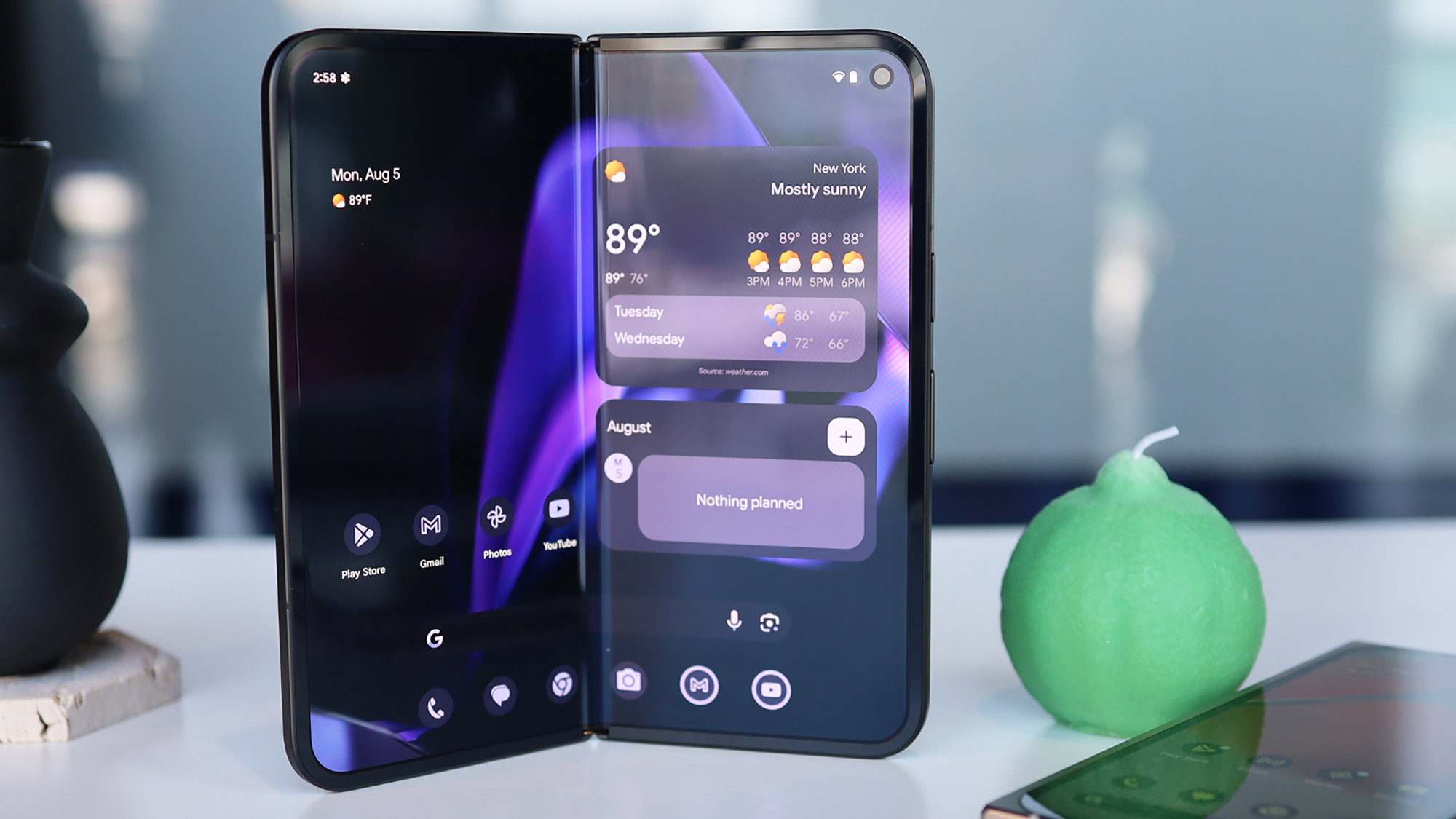
While the Pixel is a little pricier, it comes with promise of a whopping seven years of both Android OS and security updates, which trumps the four years of OS updates and five years of security updates OnePlus has promised to the Open. What’s more, the Pixel 9 Pro Fold arrives on Android 14, while the age of OnePlus’ foldable means it came with Android 13 out the box and has already used up one of its four years of OS updates.
If longevity is of the utmost importance to you, the Pixel is the clear winner, but if you don’t realistically see yourself using your next foldable beyond two to three years, then the raw performance advantage afforded to the OnePlus might make it the more logical buy of the two devices.
Google Pixel 9 Pro Fold vs OnePlus Open: Battery life
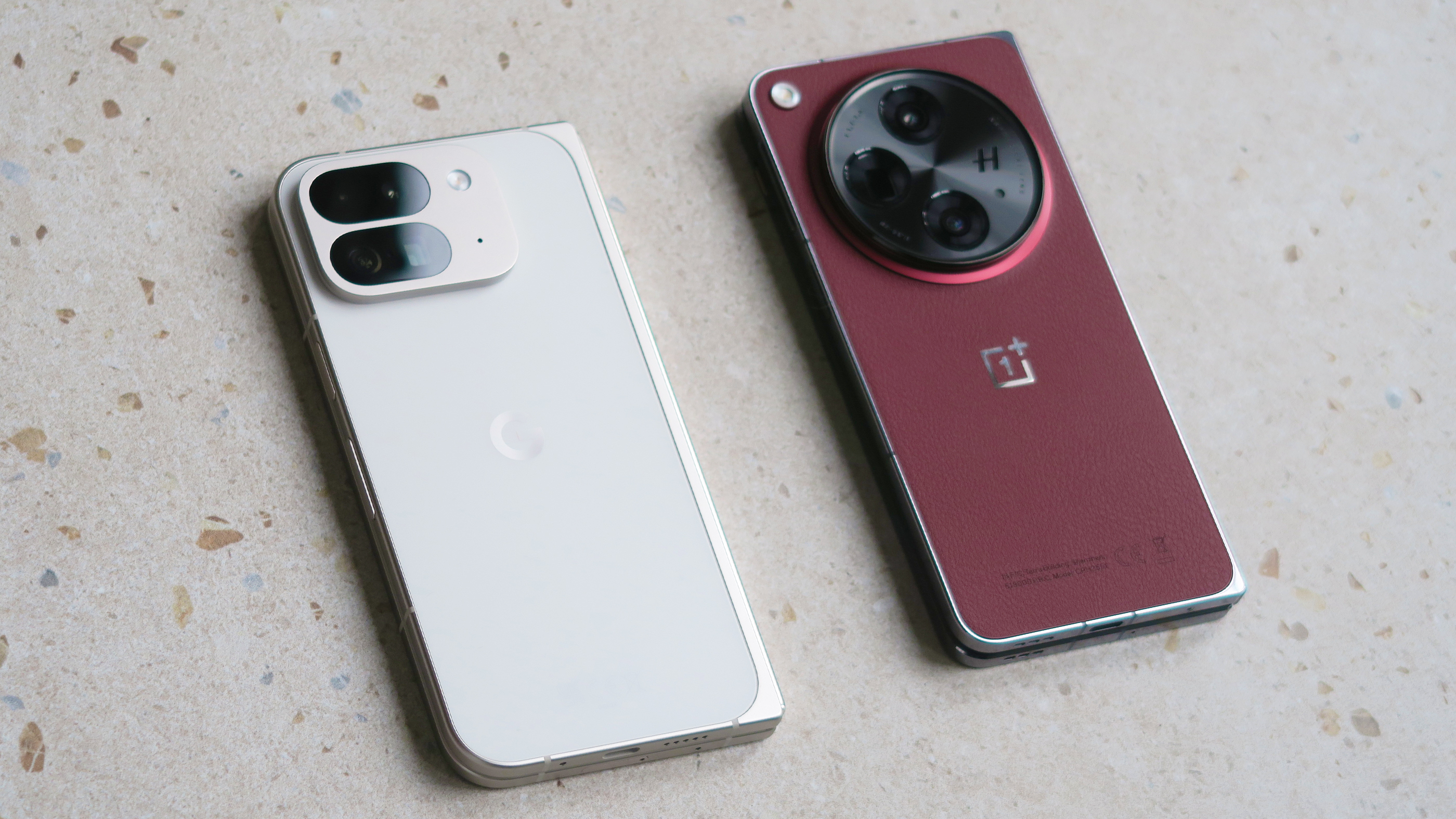
As battery tech goes, the Fold is the runt of the litter, compared to other entries in the Pixel 9 series; with the smallest capacity and slowest charging speeds of the lot. In practice, we found that it lasts all day on a single charge, but that you have to balance using the main display with the smaller cover display to hit that target. Favor the phone’s main 8-inch screen too heavily and you can expect to be looking for a wall outlet by dinner time.
It’s a different story with the OnePlus Open. Although battery capacity is only a little larger (4,805mAh versus 4,650mAh) and its longevity is not much different, running out of charge earlier than you’d like is far less of an issue, thanks to its significantly quicker fast charging.
In place of the Pixel’s paltry 21W wired charging speeds, the OnePlus Open supports up to 67W SuperVOOC charging, which in testing reaches 100% in under 45 minutes. That puts the 9 Pro Fold’s peak recharge time of just under 1 hour 40 minutes in stark relief.
To add insult to injury, like a case, Google also expects you to pay extra for a power adapter in most markets ($29.99 / £29.99 / AU$49.99), whereas OnePlus bundles its 67W power brick in-box. The silver lining is that the Pixel packs in convenient wireless charging (at 7.5W) while the Open lacks such functionality altogether.
Google Pixel 9 Pro Fold vs OnePlus Open: Verdict
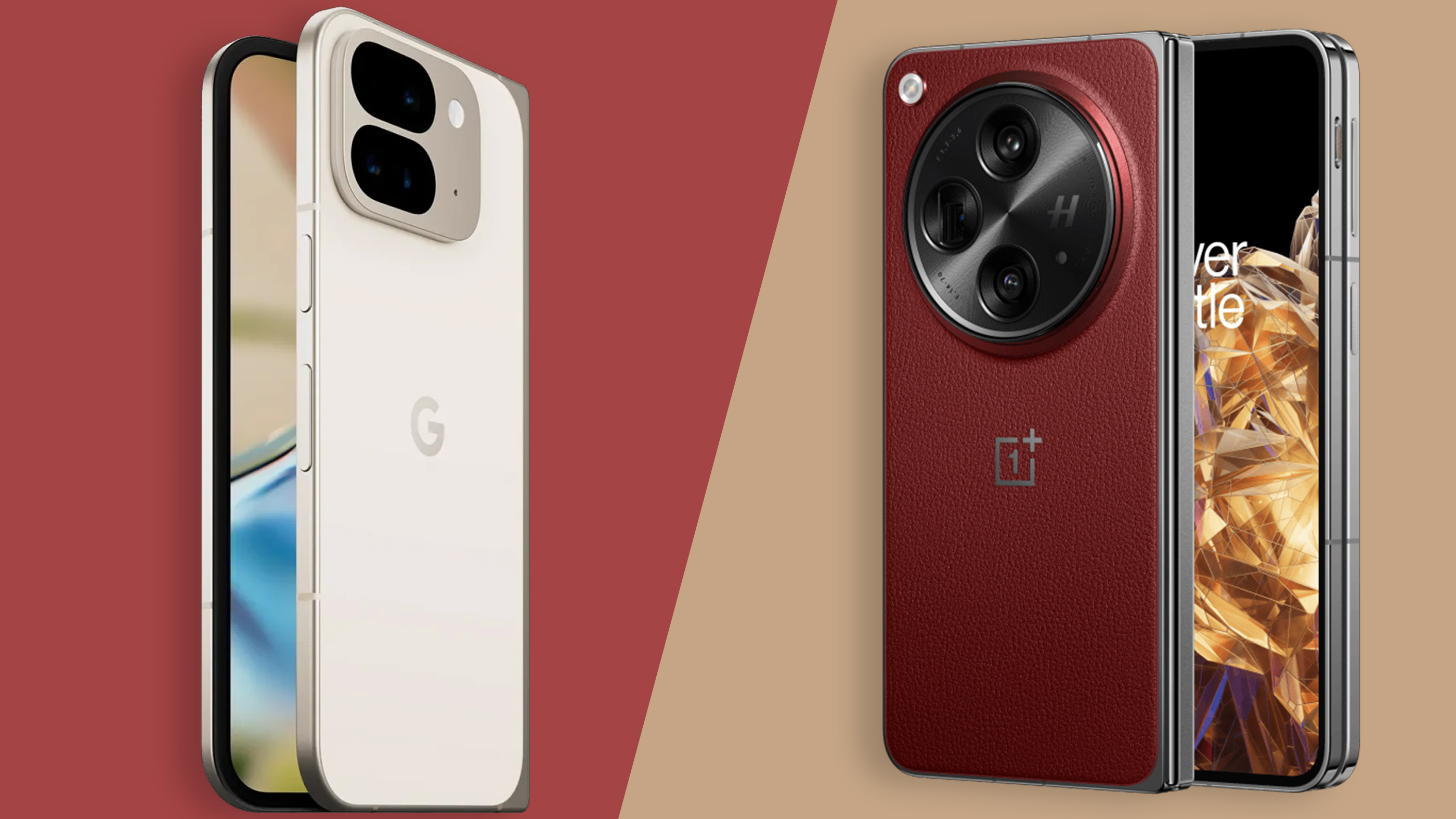
The Google Pixel 9 Pro Fold looks to be less powerful, comes with less storage, and it’s more expensive, so why would you choose it over the OnePlus Open?
Google has gotten very good at some very specific things; its clean Android user experience, industry-leading software support for its devices, impressive computational photography smarts and boundary-pushing on-device and cloud-supported AI functionality. If any of that appeals and you’re after a foldable, then the Google Pixel 9 Pro Fold is the best and perhaps the only option worth considering.
If you, more realistically, fancy a stylish, capable foldable that nails the fundamentals and packs some genuinely useful extras which capitalize on the unique properties of the form factor, then the more affordable and equally (but differently) capable OnePlus Open makes better sense in your pocket.

